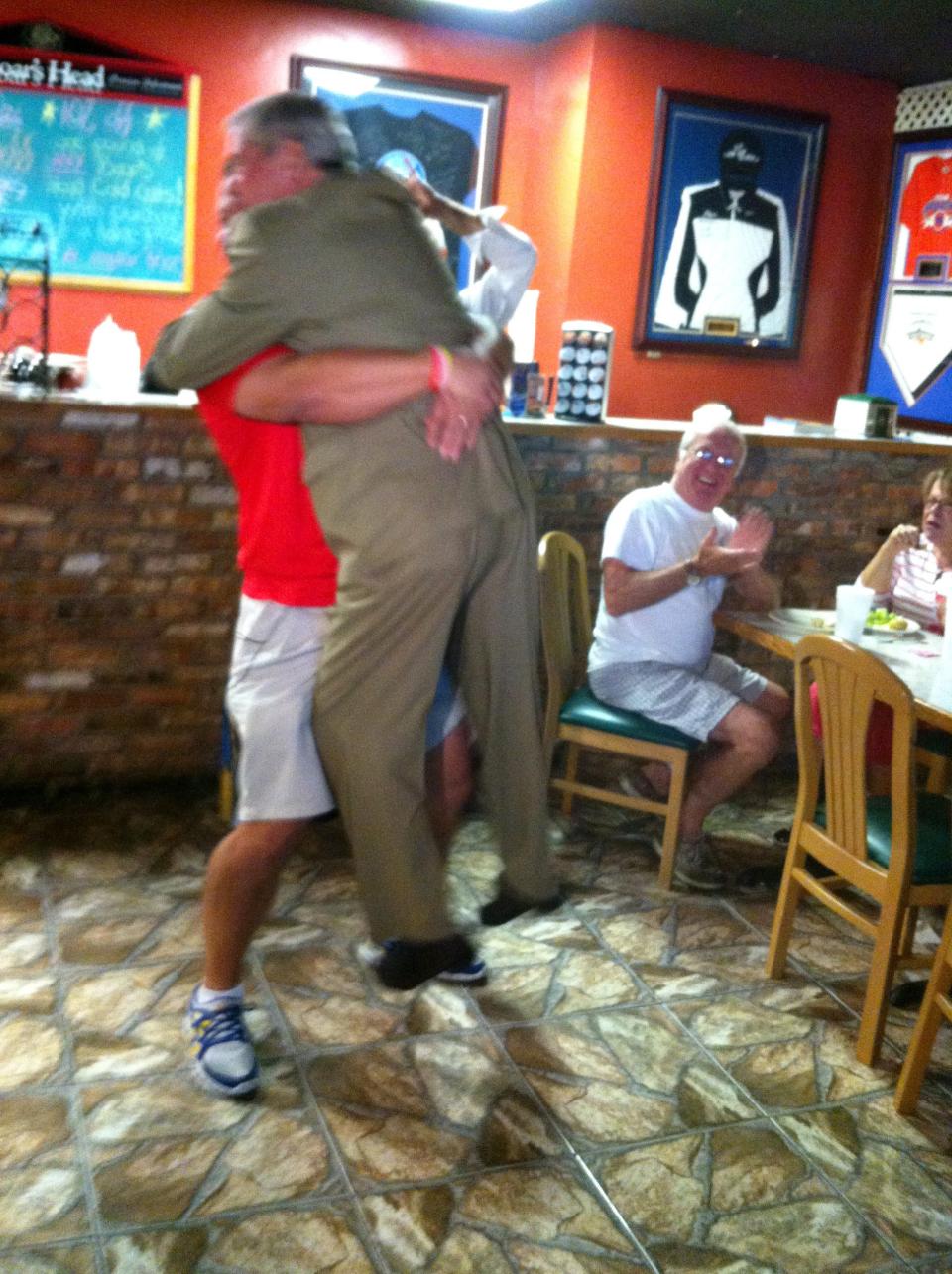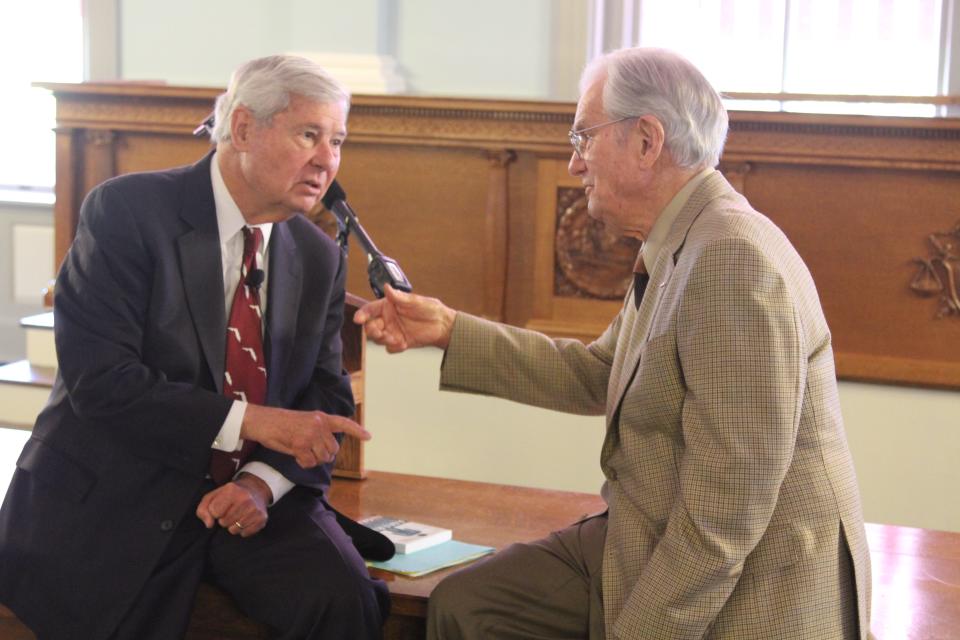Bob Graham and his 'across-the-aisle' urgent legacy of decency and harmony | Column
- Oops!Something went wrong.Please try again later.
The death of Bob Graham feels personal.
In a sense we started out together, both of us new to Tallahassee in the late 1960s.
He was a Floridian, but a Miami native, which was not a lineage that impressed the Democrat’s Porkchop Gang running the Legislature back then.
Elected to the House in 1966, Graham was bright, bookish and, as it turns out, would be notably skilled at what not long ago we called “reaching across the aisle.”
My arrival in the capital, fresh out of college in Missouri, meant my midwestern bluntness needed to be softened to what I learned was a more formidable Southernspeak. And then there were the hugs. Lots of huggers in the South.
Indeed, Graham himself was a hugger, which I found out when covering legislative sessions in the '70s when Graham was senator.
He greeted Florida press corps reporters with his signature good-natured quips and, for the few women reporters then, Barbara Frye, Virginia Ellis and me, hugs.

Graham’s Harvard brainpower showed up in debate. He’d talk about paradoxes and enigmas and quote writers from Arthur C. Clarke (“2001: A Space Odyssey”) to Thomas Paine’s “The Rights of Man.”
As one of the “Doghouse Democrats” trying to reduce power of the Senate president, Graham was scorned by then-president Lew Brantley of Jacksonville. Though Graham was bright, capable, and innovative, Brantley gave him no significant committee assignments, which must be counted as a mistake.
Now Graham had more time to ponder broad philosophical changes.
Graham pushes back against power and stages a surprise
In 1976, while in the Senate, but running for governor, he argued to not put too much power in the hands of a single individual. A teenager during World War II, he had witnessed the tyranny of dictators.
“You cannot allow democracy to depend on the good will and benevolence of people in office at the time,” Graham said. “Having a system that doesn’t depend on those in control should be the goal of the rules of this Senate.”

The fractured legislature – divided within the Democratic party because Republicans were a minority – never moved forward on diminishing leadership power.
But Graham did move fast in his campaign for governor.
Though for months during the primaries he was trailing Attorney General Bob Shevin, on the evening of Oct. 5, 1978, at the Miami hotel where Shevin’s campaign was ready to celebrate, some wildly unexpected and profoundly disappointing news came. It was Graham, not Shevin, who had won the runoff, with a 53-46 margin.
A champion of the environment and equal rights
Graham went on to defeat Republican and drug-store magnate Jack Eckerd and as governor for eight years, leaving most notably a significant environmental legacy.
As governor he pushed through laws to protect the Everglades, beaches and shores, even as legendary environmentalist Marjory Stoneman Douglas, then age 91, expressed skepticism that a big landowner (Graham’s family had developed Miami Lakes) could be sincere. Her own battle on behalf of nature had been going on since 1915 when she moved to south Florida.
But Graham’s environmental credentials were governed by his belief that concepts of environment protection and clean industry weren’t incompatible; that taxes on industries were essential to clean up the environment.
As state senator, Graham championed the Equal Rights Amendment, insisting it wasn’t a matter of state’s rights, as was being argued at the time, but rather “a statement of our belief in personal decisions, of individual determinations, of the individual foibles of men and women.”
As governor he was light years ahead of his time in vetoing a bill permitting motorists to carry a concealed gun, loaded and ready to use.
Graham's most urgent legacy: A call for civility
As a U.S. Senator, Graham served with distinction on the Intelligence Committee for 10 years, during and after 9/11 and the runup to the Iraq war, which he opposed.
In retirement, he wrote books of warning and intrigue in public life and he championed civility, starting with a return of Civics 101 in public education.
"The time for yelling at each other and being antagonistic is over,” he told National Public Radio in a 2018 interview. “If we’re going to solve problems, its gonna take collaboration and that’s going to take leadership to bring people that start at different points of view together to a common ground.”
Bob Graham’s tireless search for answers, for harmony, decency, and across-the-aisle respect that should be evermore a part of public service, is at last his most urgent legacy, left in the minds of those of us fortunate enough to say, “I knew him when.”

Mary Ann Lindley is a former columnist and editorial page editor of The Democrat who later served as a Leon County Commissioner.
This article originally appeared on Tallahassee Democrat: Bob Graham and his urgent legacy is a call for decency and harmony

